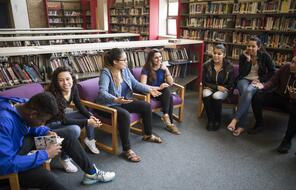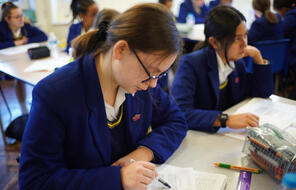Resource Library
Find compelling classroom resources, learn new teaching methods, meet standards, and make a difference in the lives of your students.
We are grateful to The Hammer Family Foundation for supporting the development of our on-demand learning and teaching resources.

Introducing Our US History Curriculum Collection
Draw from this flexible curriculum collection as you plan any middle or high school US history course. Featuring units, C3-style inquiries, and case studies, the collection will help you explore themes of democracy and freedom with your students throughout the year.
3287 Results
Identity and Storytelling
Designed for students in grades 8-10, this text set includes lesson plans and multi-genre texts for a 1–2 week unit exploring the essential question, "What makes me, me?"
Standing Up to Hatred and Intolerance
Address today's global challenges with lesson plans focused on current events including the refugee crisis and contemporary antisemitism.

Establishing Opening and Closing Routines
These opening and closing classroom routines will set a welcoming tone, allow students to connect with one another, and encourage goal setting.
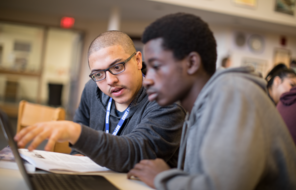
Stolen Lives: The Indigenous Peoples of Canada and the Indian Residential Schools
Explore our online resource on the Indian Residential Schools and their long-lasting effects on Canada’s Indigenous Peoples.
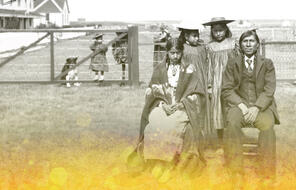
Americans and the Holocaust: The Refugee Crisis
Explore the motives, pressures, and fears that shaped Americans’ responses to Nazism and the humanitarian refugee crisis it provoked during the 1930s and 1940s.

10 Questions for Young Changemakers
This unit uses the 10 Questions Framework to explore two examples of youth activism: the 1963 Chicago schools boycott and the present-day movement against gun violence launched by Parkland students.
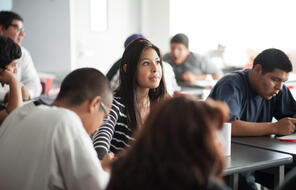
Holocaust and Human Behavior
Explore the digital version of our core resource on the Holocaust. Find classroom-ready readings, primary sources, and short documentary films that support a study of the Holocaust through the lens of human behavior.

Spanish Translations from Holocaust and Human Behavior
Get Spanish-language versions of popular readings from Holocaust and Human Behavior.

Teaching Holocaust and Human Behavior
Use this 23-lesson unit to lead middle or high school students through a study of the Holocaust that asks what this history can teach us about the power and impact of choices.

My Part of the Story: Exploring Identity in the United States
Help students understand that their voices are integral to the story of the United States with six lesson plans that investigate individual and national identity.
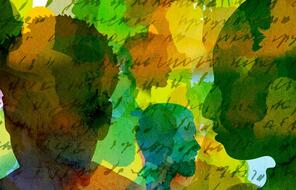
Community Matters: A Facing History & Ourselves Approach to Advisory
Our advisory curriculum for grades 8–10 contains a year’s worth of activities, handouts, and best practices for establishing inclusive communities where students can engage in honest discussions and build their voices.
